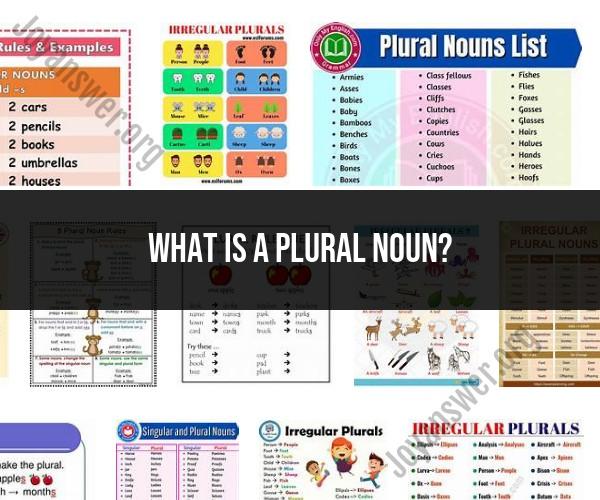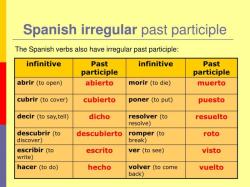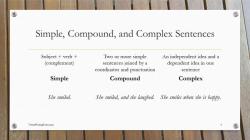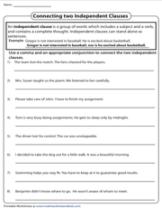What is a plural noun?
A plural noun is a noun that refers to more than one person, place, thing, or idea. Plural nouns are used when you want to indicate that there are multiple instances or quantities of the noun.
In English, forming the plural of most nouns involves adding an "s" to the singular form. Here are some common rules for creating plural nouns:
Add "s" to Most Singular Nouns: For many nouns, you can simply add "s" to the end of the singular form to make it plural. For example:
- Singular: car
- Plural: cars
Add "es" to Singular Nouns Ending in S, X, Z, Sh, or Ch: When a singular noun ends in "s," "x," "z," "sh," or "ch," you usually add "es" to make it plural. For example:
- Singular: bus
- Plural: buses
- Singular: box
- Plural: boxes
Change "y" to "ies" for Nouns Ending in a Consonant + Y: If a singular noun ends in a consonant followed by "y," change the "y" to "ies" to form the plural. For example:
- Singular: baby
- Plural: babies
- Singular: city
- Plural: cities
For Nouns Ending in a Vowel + Y, Just Add "s": If a singular noun ends in a vowel followed by "y," simply add "s" to form the plural. For example:
- Singular: toy
- Plural: toys
- Singular: boy
- Plural: boys
Irregular Plurals: Some nouns have irregular plural forms that don't follow the standard rules. For example:
- Singular: man
- Plural: men
- Singular: woman
- Plural: women
Nouns That Stay the Same in Singular and Plural: Some nouns are the same in both singular and plural forms. For example:
- Singular: deer
- Plural: deer (no change)
Compound Nouns: Compound nouns (nouns made up of two or more words) can have different rules for forming plurals. For example:
- Singular: mother-in-law
- Plural: mothers-in-law
It's important to note that while these rules cover many common cases, English does have exceptions and irregularities when it comes to plural nouns. Learning the rules and practicing with different nouns will help you become more proficient in forming plural nouns correctly.












